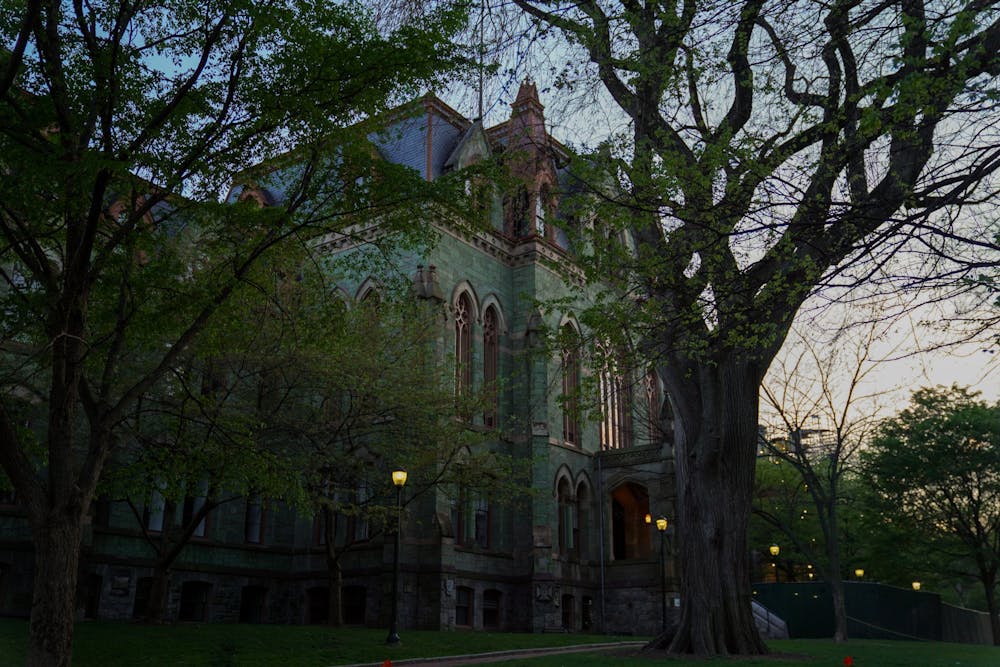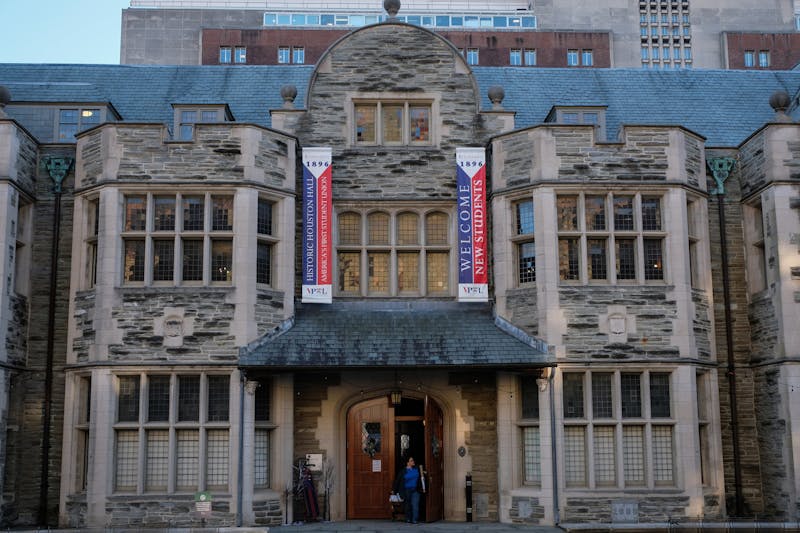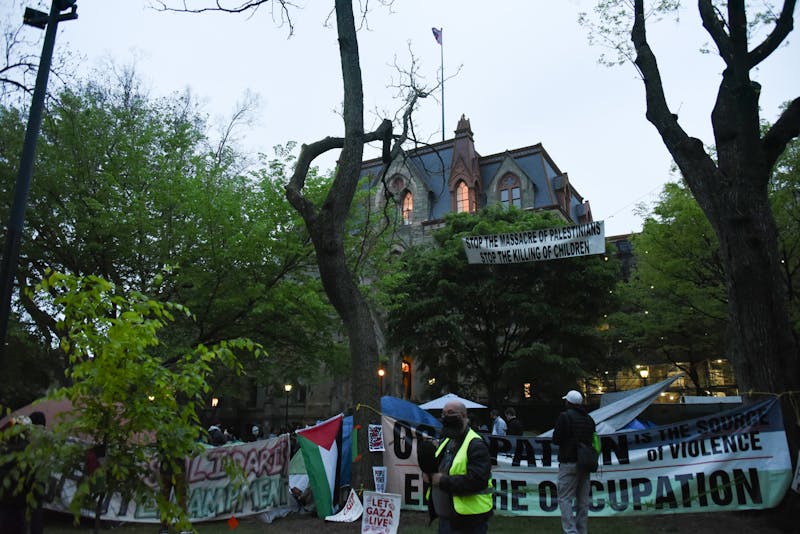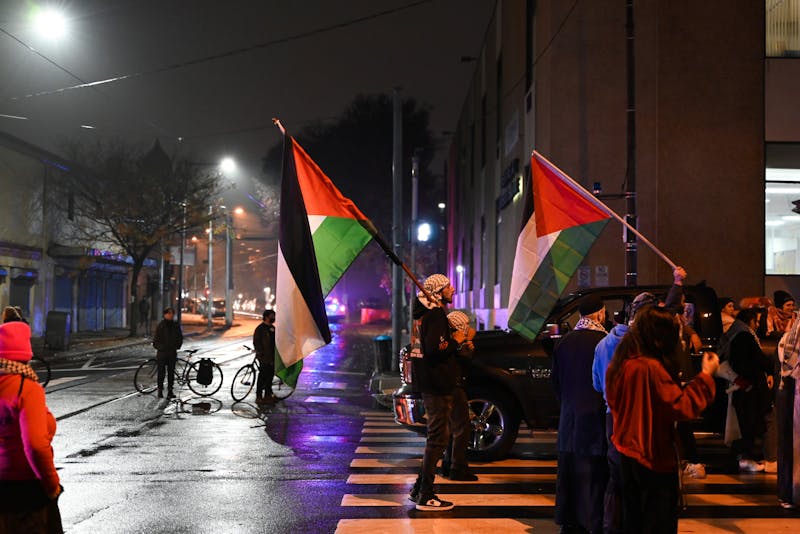
Penn's Muslim Student Association and Israel Public Affairs Committee are seeking dueling referendums of the undergraduate student body on questions related to the University's response to the Israel-Hamas war.
The first petition, which was circulated on Wednesday by Penn MSA and reposted by Penn Students Against the Occupation, asks students whether the University should divest its endowment fund from companies and organizations that "profit from, engage in, or contribute to the government of Israel's human rights violations."
“As we have previously stated, on numerous occasions, the University of Pennsylvania does not support boycotts, divestment, or sanctions against Israel," a University spokesperson wrote to The Daily Pennsylvanian.
An MSA executive told the DP that the proposed referendum is a way to "provide a democratic avenue to voice student opinions and concerns to administration without fear of outside influence."
"The MSA knows that many students have been silenced of their opinions on campus and prevented from engaging in meaningful dialogue about the war due to fear of doxing and physical harm that has occurred on our campus and many campuses across the country," the spokesperson said.
The petition, which gathered the 500 signatures necessary to be sent to the undergraduate student body, came before the Nominations and Elections Committee for approval on Wednesday night.
On Thursday morning, PIPAC posted on Instagram "in response to the proposed BDS referendum that went around campus yesterday."
The group asked four questions related to whether Penn should adhere to the Department of Education and Pennsylvania's anti-discrimination regulations, whether Penn should continue investing in Israeli companies spearheading "cancer research," "medical breakthroughs," and "innovative technologies to assist underdeveloped countries"; and whether the University should maintain ties with Israeli companies working on using technologies to "defend itself and free the hostages."
PIPAC Co-President and College first year Ben Messafi wrote to the DP that the MSA referendum represents an attempt to bring the Boycott, Divestment, and Sanctions movement back to Penn.
"BDS is an antisemitic movement that boycotts Jewish students and institutions, and prevents meaningful dialogue about the war at hand," Messafi wrote. "The University and the Commonwealth of Pennsylvania have previously condemned this movement, and we call on them to once again recognize its intent to harm Jewish students.”
The referendum is the "highest decision making instrument of student government," according to Article X of the Undergraduate Assembly Constitution. NEC bylaws state that a referendum may be called by the presentation of a petition with signatures from 5% of currently enrolled undergraduates. NEC is responsible for administering the referendum, which requires participation of at least 15% of currently enrolled undergraduates to be validated.
In a joint statement to the DP on Wednesday night, NEC Chair Yousef Elyoussef and UA President Ria Ellendula expressed support for the process of initiating a referendum based on student concerns. They wrote that given events at Penn and college campuses nationwide, they "want to give agency to students to voice their concerns to administration through a mechanism that is democratic, strategic, and fair."
"We understand that the MSA is proposing an unprecedented referendum and we want to stand by our commitment to amplifying student voices and our responsibility to advocating for the student body," Elyoussef and Ellendula wrote. "Our goal is to ensure this is an equitable and transparent process."
The PIPAC referendum was not public by the time of the UA and NEC statement.
In addition to the divestment question, the MSA petition surveys students on whether the Penn Board of Trustees should publicly disclose all investments held through the endowment fund. The remaining question on the MSA petition asks if Penn should terminate all partnerships and ties with Ghost Robotics, "the developers of drone-mounted robot dogs purchased by the Israeli government used to commit human rights violations."
Ghost Robotics is a company housed in Pennovation Works that develops and sells four-legged robots to be used for "data collection, intelligence, security, asset protection, and military-specific uses." Pro-Palestinian activists allege that the Israeli military has been using the robots in the Gaza Strip. On April 5, around 120 protestors held a demonstration protesting Ghost Robotics at the Ben Franklin statue on College Green, calling for Penn to cut ties with the company.
On Monday, Columbia College passed a referendum for Columbia University to divest from Israel, cancel the Tel Aviv Global Center, and terminate a dual degree program with Tel Aviv University. The referendum, which was first proposed by Columbia University Apartheid Divest, had 40.26% voter participation consisting of over 2,000 undergraduate students. The question of divesting from Israel passed with 76.55% of the vote in favor, and the other two questions both passed with over 65% support.
The referendum was administered by the Columbia Elections Board. While the results do not directly affect university policy, it serves as an official poll of students' sentiments on Columbia's connections to Israel, according to the Columbia Daily Spectator.
At Harvard University, the undergraduate student government approved a petition on April 10 initiating a referendum whether Harvard should divest from institutions with financial ties to Israel. The referendum was postponed indefinitely three days later, following a procedural motion by Harvard Undergraduate Association officers to delay the vote.
The Daily Pennsylvanian is an independent, student-run newspaper. Please consider making a donation to support the coverage that shapes the University. Your generosity ensures a future of strong journalism at Penn.
Donate










